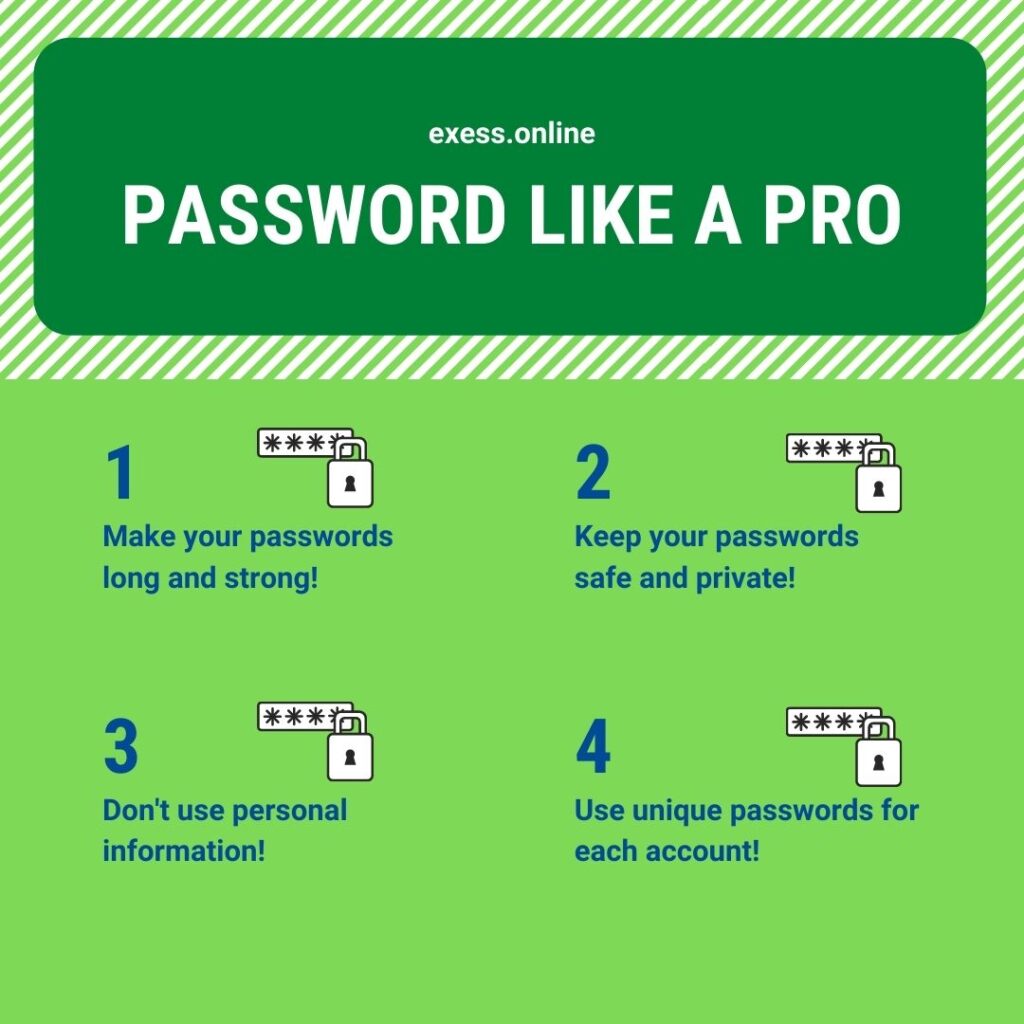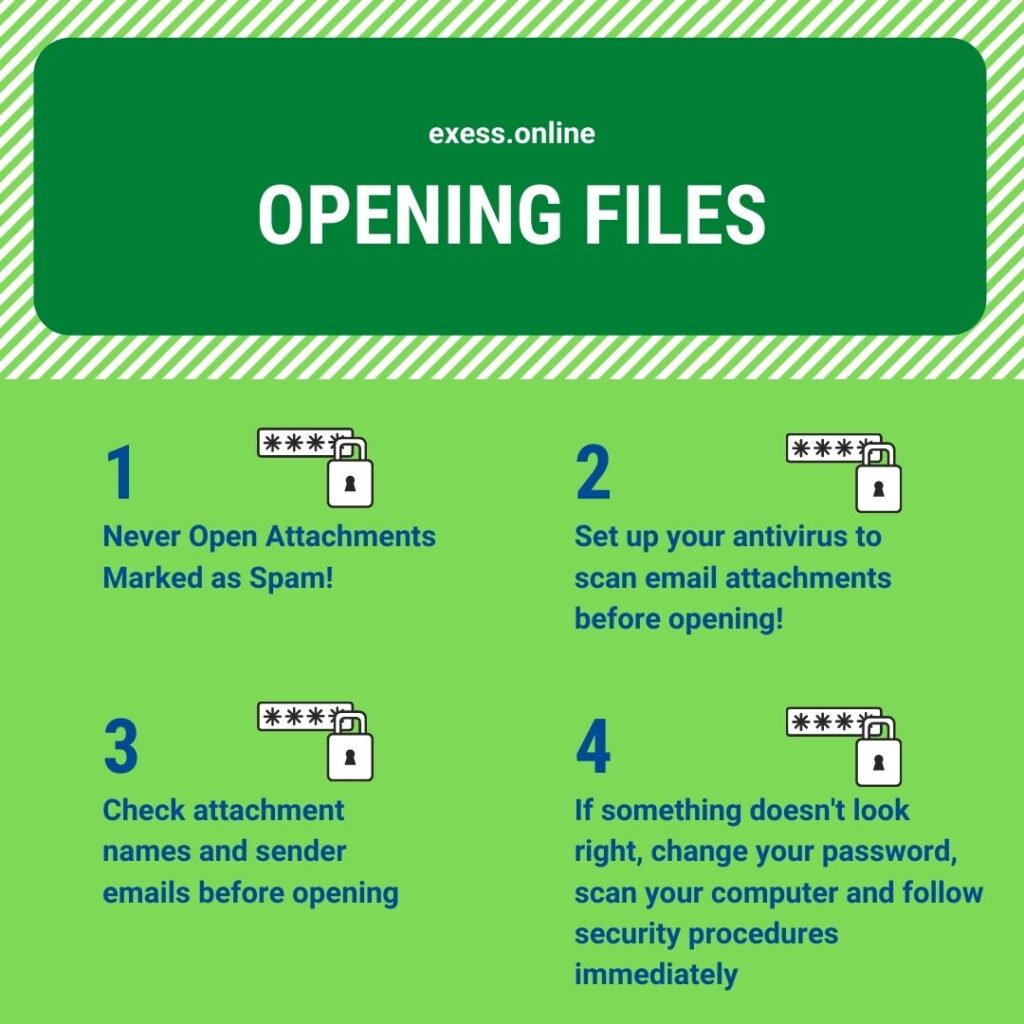Cyber safety threats are nothing new. Hackers and scammers have been doing their thing for a long, long time. Not a week goes past without some news story about an individual being hacked or an organisation under cyber attack.
Cyber Safety Week is a great reminder for all of us to assess and tighten the cyber security measures that we use at home, and also those that you use within your organisation.
Now is the time to set strong policies around web use for your employees, as well as strengthen your passwords and anti-virus software in the office and at home.
There are some simple ways to help to protect yourself right now.
Keep reading to see our 5 easy-to-do ways to increase your cyber security.
Lets get secure!
1. Create passwords like a pro!
Being password smart is easy. Anyone can do it! We’ve broken down the how in 3 easy to manage steps so you can tighten password security today!
· Make your passwords long and strong!
Upsizing your passwords by using unique combinations of letters, numbers and symbols is one of the best ways to protect yourself online. There are apps that can help create strong passwords for you. A long string of unrelated words can also make great passwords as they’re easy to remember and difficult to guess.
· Keep your passwords safe and private!
You should never share your password with anyone. Reconsider saving passwords into private devices, and definitely NEVER save passwords into work devices or into databases containing private client data. Whenever you are saving a password you need to consider the possibility that the device may be lost or stolen – what information are you potentially giving away by having your passwords stored for easy access?
· Don’t use personal information as passwords!
If you use social media, your personal information is probably accessable. Facebook quizzes that ask questions like ‘what was your first pets name’ are known hacker data mines! On social media your DOB, address, mothers maiden name and all other standard password reminder data is likely really easy to find. Avoid using anything like this as your password.
· Use unique passwords for each account!
A lot of people stick to just one or two passwords that they re-use for each account. The issue with doing this is that if a hacker gets the password to one account, they have automatic access to all of your accounts. Use unique passwords for each of your accounts to help protect your data!
Step 2. Update your apps and devices
Regularly updating your apps and devices helps to keeps bugs and viruses out. Updates fix security issues so that hackers find it harder to gain access to your information. Set apps to auto update or check for updates regularly!
Step 3. Get some great antivirus software!
Keep yourself and your organisation safe by ensuring that all devices have great anti-virus software installed on them!
It is easy to install excellent anti-virus software on all of your devices and keep your anti-virus software live and updated so it can detect potential threats in your systems.
Be sure to run software to check device health regularly to keep your data safe!
Step 4. Be careful of links and downloads
Many users get computer viruses or even hacked as a result of opening and running unknown email attachments. There are some easy rules to obey to reduce the likelihood you will be hacked.
· Never Open Attachments Marked as Spam!
Email accounts often flag bad attachments to the recipient. Pay attention to what your email provider is telling you and never open attachments that have been marked as spam!
· Scan email attachments before opening!
You can set your anti-virus software and your web browser to scan links and attachments. This is an easy way to help protect you and your data!
· Monitor sender details and attachment titles!
Have you ever received an unexpected email saying that you need to click a link to protect your bank account? Or that if you don’t pay a bill immediately, you’ll be sent to collections? Keep an eye on the email addresses, signatures and language used within emails. Never click links from unknown sources. If you have an email from your bank (for example) and you’re unsure, call them directly and ask them what’s going on!
· Protect yourself!
Did you accidentally open an attachment with a dangerous file extension? You need to act immediately! Change your email password right away and if you are at work, let management know what has happened so that they can act quickly.
Run your antivirus software.
If the attachment seems to have came from someone you know, contact them to let them know that they may have been hacked.
Step 5. Report it!
If you, or someone you know, experiences a cyber security incident, report it to your management team, your software providers and to the police!
Being cyber safe is essential and by following these 5 easy to implement cyber security tips, you’ll reduce the risks to your security! To help encourage cyber security in your office, go ahead and





